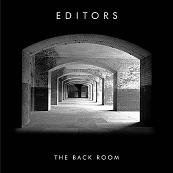 Editors are a new-alternative Birmingham band, who have, aptly, released their latest single, "Munich", yesterday (January 2, 2006) - in the stark dead zone of the new year - just when Spielberg's new film, Munich, is soon to open.
Editors are a new-alternative Birmingham band, who have, aptly, released their latest single, "Munich", yesterday (January 2, 2006) - in the stark dead zone of the new year - just when Spielberg's new film, Munich, is soon to open."Munich" - though good - isn't actually one of the four or so stand-out tracks on the album The Back Room - those would be: "Lights", "All Sparks", "Bullets" and "Open Your Arms".
It is, however, thrillingly derivative of New York's Interpol, by way of the starkest of them all, Joy Division (a personal favourite of mine). My brother, who used to run an indie label, worked with some of the Interpol lads, I believe, when they were called Flashlight. At any rate, their first album was an exquisite homage to a particular time and place not their own.
Editors are inexplicable, which is not the same thing as being unjustifiable, except in the context of the moment, which is, barely, in to "retro" and mildly interested in 80s bands like Echo & The Bunnymen and of course the above-mentioned Mancunian masters.
Editors (they've even edited The) seem to have set out, rather modestly, to approximate the exact sound, tone and effects of Interpol, which is to recreate the spooky, disembodied, zero-at-the-bone morbid philosophy of Ian Curtis, that herky-jerky somnambulist of post-Adorno poetry.
So, let us salute these bleak troubadours (open your arms and welcome them, even) - and hope they find a dark sliver of uniqueness - even light - in their room of the great black back catalogue.
Comments